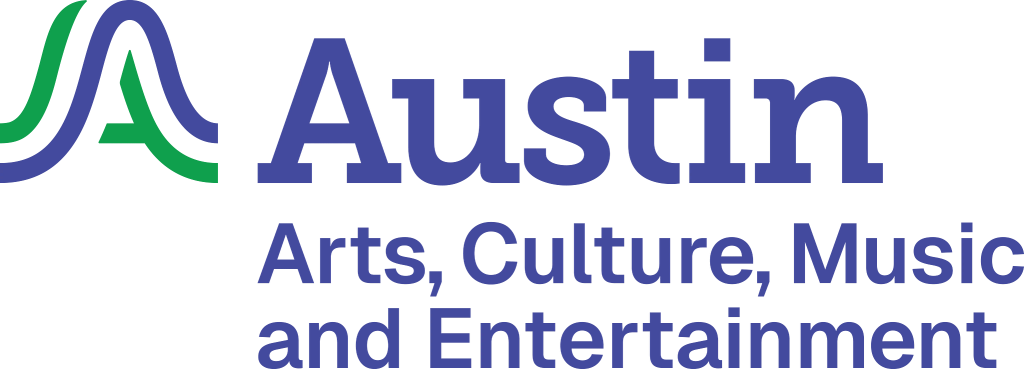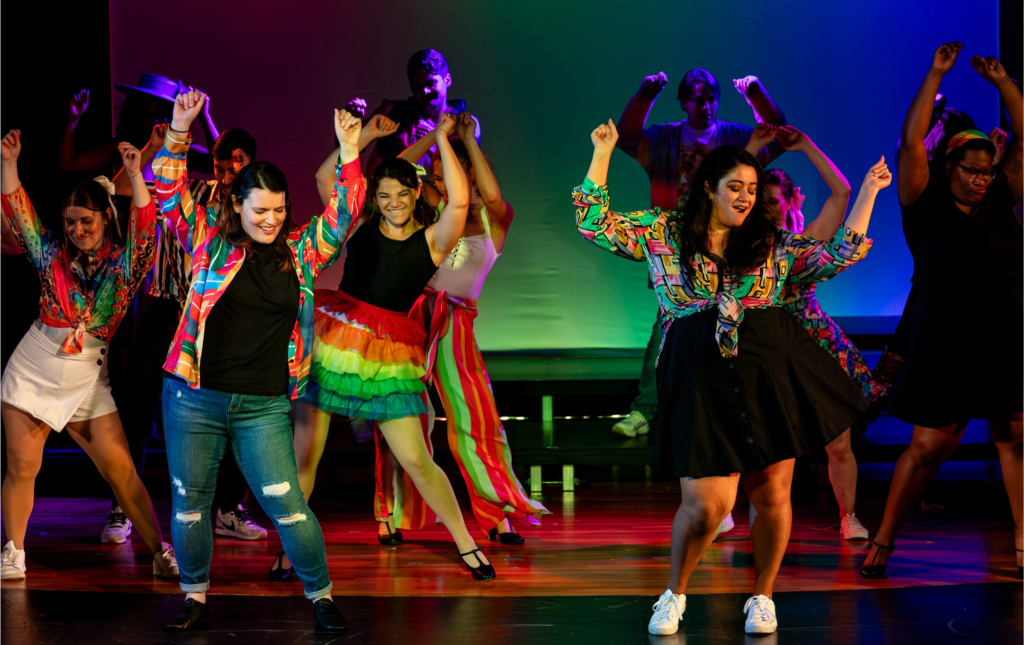Elevate Guidelines |
Application Assistance |
Workshops & Office Hours |
Elevate Application Preview |
Elevate History |
No application currently open.
Check back Summer 2026.
Photo by Bailey Savage - Courtesy of River City Pops
Austin Arts, Culture, Music and Entertainment's Elevate program invests in cultural organizations, groups, and individual artists that create vibrant, publicly accessible artistic experiences. This program sustains and strengthens Austin’s creative ecosystem by supporting the production, operations, and administration of culturally rich programming for both residents, visitors, and tourists.
To learn more about requirements for all AACME Funding Programs, go to FY26 AACME Funding Guidelines.
Elevate Guidelines
Grants awarded in the following categories:
Applicant Type and Budget Size |
Award Amount |
501(c)(3) Arts Nonprofits |
|
| Operating budget $300,000 or greater | Award up to $80,000 |
| Operating budget of $100,001 to $299,999 | Award up to $60,000 |
| Operating budget of $50,000 to $100,000 | Award up to $50,000 |
| Operating budget under $50,000 | Award up to $30,000 |
State of Texas Arts Nonprofits/Arts Groups |
|
| Operating budget $50,000 to $500,000 | Award up to $40,000 |
| Operating budget under $50,000 | Award up to $30,000 |
Individual Artists |
|
| Operating budget $500,000 or less | Award up to $30,000 |
- Eligibility
-
Eligible Applicants- 501(c)(3) Arts Nonprofit Organizations
- Arts Groups*, including State of Texas Designated Arts Nonprofits
- Individual Artists*
*Applicants may apply directly or with a Fiscal Sponsor
Eligibility Requirements - All Applicants- Budget Limits:
- 501(c)(3) Arts Nonprofits: No budget restrictions
- Arts Groups and Individual Artists: $500,000 max annual operating budget
- Creative mission or artistic goals are the production of arts and culture activities, which includes arts service providers that offer professional support to creatives
- Have evidence of at least two years of creative production history in Austin
- Produce events and/or activities that are open and advertised to Austin residents, visitors, and tourists
- Headquartered in Austin MSA, with over half of creative production is within the Austin City Council Districts or Extraterritorial Jurisdiction
Ineligible Applicants- Applicants whose primary mission or vision is NOT rooted in producing arts and culture activities
- Other 501 (c) Nonprofit organizations
- Arts Group or Individual Artist applicants with annual operating budgets above $500,000.
- Applicants headquartered outside of Austin MSA
- Applicants with less than two years of production history in Austin (prior to application deadline)
- Applicants producing work outside of the Austin Council Districts or Extra Territorial Jurisdiction
- Full-time City of Austin Employees
- Full and part-time Austin Arts, Culture, Music and Entertainment Employees
- Expenses
-
Eligible ExpensesIncludes, but not limited to, the following categories related to the grant-funded activities:
- Artist and administrator compensation
- Marketing & outreach
- Insurance
- Supplies
- Permits
- Venue or equipment rentals
- Production, performance and service fees
Ineligible Expenses- Awardees are prohibited from “double dipping” (see definition in Appendix A of Guidelines) with their grant funds to cover the same expenses or activities. Each Grant Agreement will dictate what expenses are allowed during the grant agreement term. For example, “rent” can only be paid by one grant award
- Awardee travel costs, including gas, flights, hotels, tolls, parking, and ferries
- Curriculum development or programming, scholarly or academic research, and any related activities
- Food & hospitality
- Fundraisers, capital campaigns, and benefits, including entertainment and receptions
- Start-up costs of a new organization, for example, expenses associated with filing for an LLC, or nonprofit status
- Consultants who are also employees
- Payments to students or interns whose employment is tied to class credit
- Purchase of gifts, awards, cash prizes, scholarships, contributions, donations, or re-granting of funds
- Existing debts, fines, contingencies, penalties, interest, or litigation costs
- Fiscal sponsor fee, if applicable (cannot exceed 10% of award)
- Evaluation Review and Scoring
-
Evaluation ReviewApplications are evaluated by outside panelists. All panelists are trained in the application review process and evaluate applications based on defined grant criteria. Panel discussions and written comments will be made available to the applicant. All final scoring decisions are carefully reviewed ahead of final award decisions by ACME leadership.
ScoringCategory
Criteria
Available Points
Creative Work
- Mission or artistic vision is culturally significant and community-rooted
- Activities reflect the people, places, histories and cultures of Austin
- Creative work reflects clear intent, authentic perspective, and meaningful cultural expression
Up to 50 Capacity
- Leadership or team demonstrates understanding of and connection to the communities served
- Budget and staffing are suited to the project’s scope and goals
Up to 30 Public Connection
- Programs are welcoming and accessible to a wide public
- Activities foster community belonging and cultural connection across Austin’s populations
Up to 20
- Awardee Commitments
-
If selected for an Elevate Award, awardees will be expected to complete the following per terms of their agreement:- Initial Report – Must be completed before the Grant Agreement and first payment are processed:
- Completion of Agreement Kick-Off Meeting and Quiz
- Provide proposed activity and budget
- Grant Agreement Requirements
- Completion of a public activity
- Post public activity to VisitAustin
- Marketing compliance (use of required logo and publicity statement)
- Final Report – Due within 30 days of all funded activities:
- Proof of funds spent (e.g., receipts, financial statements)
- Audience and participant data
- Documentation that funded activities occurred
- Proof of marketing compliance (use of required logo and publicity statement)
- Completion of two (2) Miles Partnership Tourism Marketing Trainings
- Initial Report – Must be completed before the Grant Agreement and first payment are processed:
Elevate Application Preview
- Application Questions
-
Each answer allows for a maximum of 3,000 characters:
Creative Work (50 pts)
1. What is the applicant’s mission or artistic vision and what do you do to support that mission? Answer should include responses to the three statements below:- State your mission and describe the creative activities that support it.
- Identify who your work impacts and how they engage with it.
- Explain the artistic values, traditions, or focus that guide your mission.
2. What is your proposed activity and how does it reflect the people, places, or cultures of Austin? Answer should include responses to the two statements below:
- Describe your proposed activity and how it reflects Austin’s people, places, or cultures
- Explain how your activities elevate underrepresented histories or emerging cultural forms.
Capacity (30 pts)
3. Describe your experience producing creative work or offering public experiences in Austin: Answer should include responses to the three statements below:- Introduce your key team members, their expertise and their role in the proposed activity.
- Describe your team’s connection to the community served.
- Highlight one or two examples of similar work you’ve completed successfully in Austin.
4. Budget Table and Narrative: Complete the budget table with the proposed budget needed to produce your proposed activities. Use the budget template to make a draft to copy/paste into the table in the application. Answer should address:- Payment to artists and/or administrators
- Clear explanation of all expenses to produce your activities
- Budget should be reflective of the proposed activities outlined in the application narrative
Expense Categories
Total Proposed Budget
Description of Proposed Budget Expenses (number of people/items paid for and payment rate)
Payments to Artists
Payments to Admin Support
Marketing
Venue/ Office rental
Production Fees
Supplies/materials
Accessibility Services
Equipment Rental
Fiscal sponsor Fees
Capital Expenses
TOTAL
What is your proposed project budget? Answer should include:- Explain how your budget supports your project.
- Describe other resources that will allow you to successfully complete this activity including in-kind support and funding sources beyond the grant request.
Public Connection (20 pts)
5. How will you market your proposed activities? Answer should include:
- Describe how you connect with residents, visitors and tourists.
- How are you promoting Austin as a cultural and creative destination? Share your outreach and marketing efforts, especially how you reach underserved communities.
Elevate History
The Elevate grant was originally developed with community support during the Cultural Funding Review from 2019-2022. Read the Cultural Funding Report (English, Spanish). The program was originally launched in 2023 under the purview of the Economic Development Department. Across two funding cycles, 429 awards were made spanning multiple disciplines. Through the Elevate program, $15.5 million in funding commitments supported individual artists, creative businesses and arts groups, and arts and culture nonprofits.
- Past Awardees
-
- 2023 - See the Elevate Grant Awardee list (PDF, 182 KB)
- 2024 - See the Nonprofit grant recipient list and the Individual and Creative Business grant recipient list.


